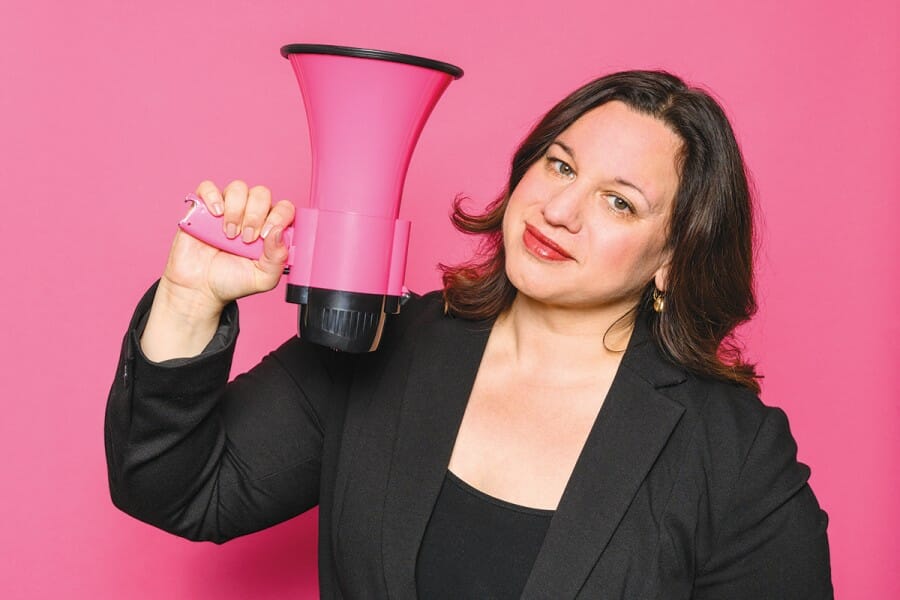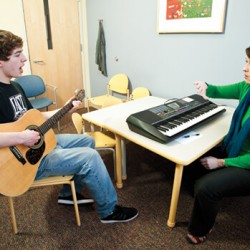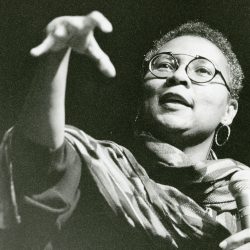How to Speak Up and Speak Out
Veronica Rueckert’s Outspoken unleashes the power of women’s voices.
Veronica Rueckert ’96 is helping individuals — especially women — find power in their voices. Rueckert earned her degree in vocal performance and is a former radio-show host and a Peabody Award–winning producer. Today she utilizes her skills as a public speaker and vocal coach while also integrating them into her work as the UW’s national media relations specialist. Her debut book, Outspoken: Why Women’s Voices Get Silenced and How to Set Them Free (HarperCollins), was published last year.
What are your main goals when coaching clients?
I really love helping people tap into that full power of their voice, because so many of the people who come to me don’t feel like their voice expresses their full power. I help them get to a place where they actually feel good about their speaking voice. They feel like themselves, they feel authentic, and they don’t feel blocked anymore.
Could you describe some of the issues that women face with their voices?
One really common one is women [in business and academia] who are doing a lot of public speaking will say, “I speak a lot publicly, and I get great feedback when I speak, but I feel lousy afterward.” Typically, what that comes down to is they are forcing themselves to be a plastic-mask version of themselves. They think that a public speaker behaves a certain way, sounds a certain way — and, by the way, typically that way is a male template that they’re trying to mimic. So, of course, it doesn’t feel right. We work on, “Hey, how would it sound if you sounded like yourself?”
Why is it important for women to learn to love and use their voices?
Because we do need everyone’s voice. If you just have 50 percent of the people in the room making the decisions and sharing their ideas, you’re missing out on so much. We [can] only be stronger when we’re more diverse.
What advice do you have for women and for all people who are looking to use their authentic voices?
Taking risks is one. If there are no women’s voices in the room, I’m going to challenge myself to be the first one to speak. If there are women in the room, but they’re not talking, I realize it right away, and I try to get the first [comment] in there, because I know that women need to see other women talking.
How might your book apply to all readers?
The exercises can benefit everyone. But not everyone will have exactly the same experience when they bring [these exercises] out into the world. We need to be aware of that and be aware of bias and be more accepting of all voices. They’re not going to sound the same. But that doesn’t mean that we have an excuse not to listen.
Published in the Spring 2020 issue




Comments
No comments posted yet.